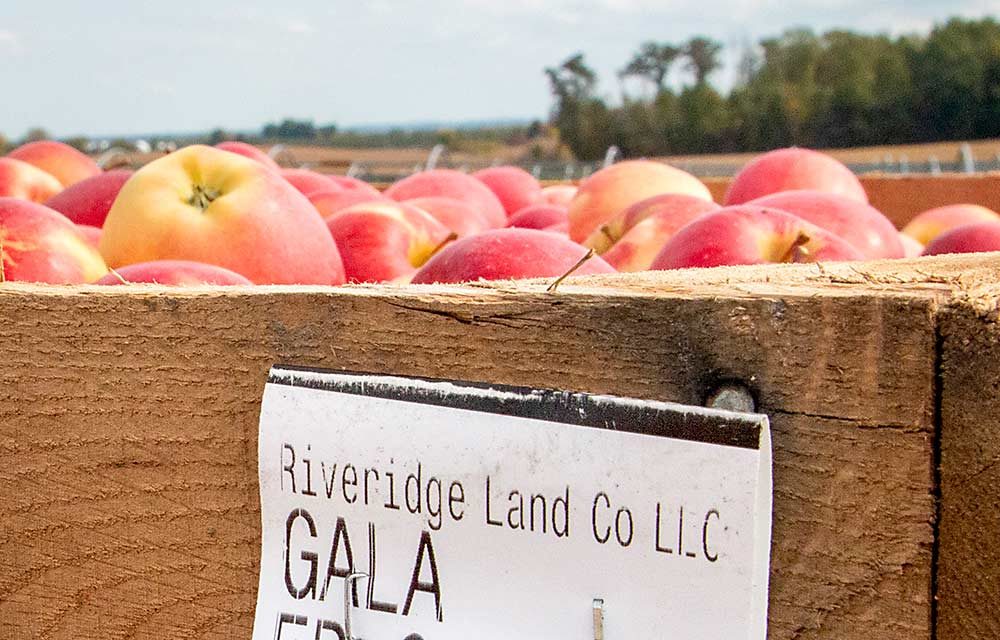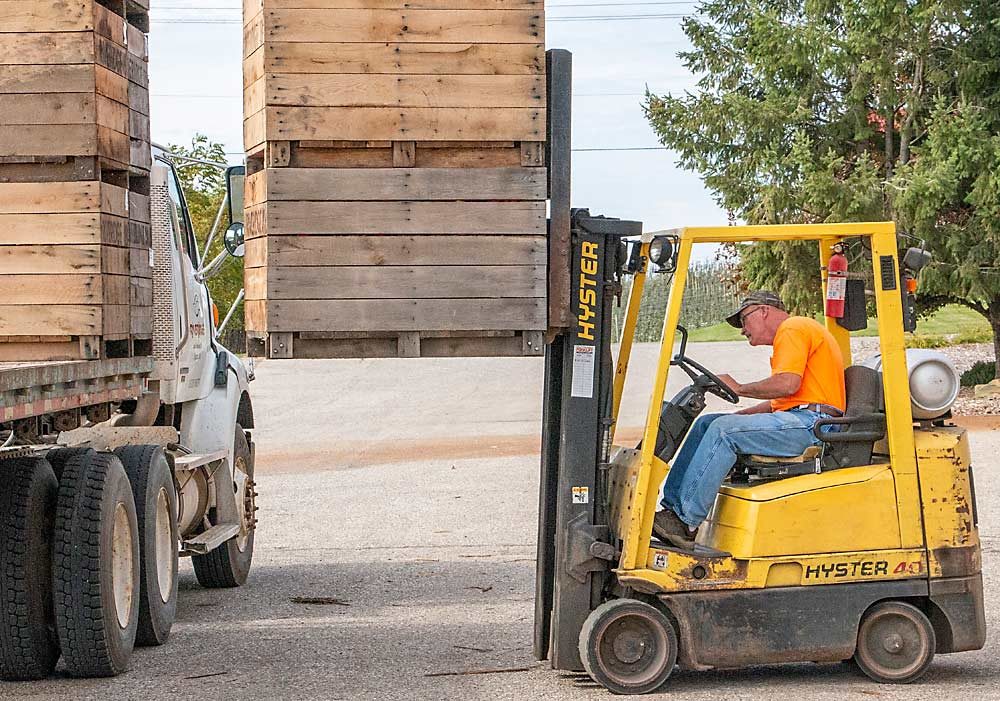
It’s been an eventful year for the Michigan apple industry. In January, Riveridge Produce Marketing acquired the sales operation of Jack Brown Produce. That same month, All Fresh GPS announced it was disbanding, and one of its partners launched a new marketing entity, Applewood Fresh Growers, shortly thereafter. A few months later, Michigan Fresh Marketing — the other half of All Fresh GPS — announced it was merging its sales operations with BelleHarvest.
Michigan’s average apple crop is 25 million bushels, roughly half of that sold fresh. Between them, the three new entities will handle more than 80 percent of those fresh apple sales.
The driving force behind the Michigan industry’s recent moves to consolidate is consolidation on the retail end, industry leaders told Good Fruit Grower. The large grocery chains that buy most of Michigan’s fresh apples want to deal with fewer sales desks — and want those sales desks to service all their needs.
“At the end of the day, the reason behind all of these partnerships and strategic alliances is that retailers want to deal with fewer suppliers,” said Nick Mascari, president of Applewood Fresh Growers. “They want one-stop shopping, somebody who can supply them 52 weeks a year.”
Phil Schwallier, owner of Schwallier’s Country Basket in Sparta, Michigan, sold his 100 acres of apples through both Riveridge and Jack Brown before they merged, and now he sells them solely through Riveridge (though some of them are still packed by Jack Brown). He said consolidation is a normal trend and beneficial for the Michigan industry.
“We need big shippers in order to supply the big buyers that are out there,” Schwallier said. “I think this allows us growers to have better marketing information.”
Consolidation also offers Michigan, the nation’s third largest apple-producing state, some protection against its competitors, especially the Washington behemoth.
“As Washington has increased in volume, so has their ability to offer larger programs,” said Milt Fuehrer, CEO of BelleHarvest. “That’s enticing for retailers. If we don’t provide scope and scalability, we’ll be on the outside looking in pretty quickly.”
By mid-October, as Michigan’s 2019 apple harvest was winding down, Washington apples were already making their presence felt in the marketplace, driving down prices. Those interviewed said the chaotic trade situation, as well as an abundance of apples coming from Europe, were contributing to the oversupply.
“It’s definitely a buyers’ market right now,” Mascari said. “It’s not the optimal situation to be in, but we’re doing OK. We’re in the perishables business. If it’s not weather or tariffs, it’s something else.”
Riveridge buys Jack Brown
When Riveridge Produce Marketing bought the sales arm of Jack Brown Produce in January, it was already the top marketer of fresh apples in Michigan, selling about 35 percent of the state crop. The addition of Jack Brown increased that volume to just over 50 percent. That increase in volume and varieties will give Riveridge customers access to consistent year-round product, said Don Armock, the company’s president.

Consumer eating and buying habits are changing. They’re snacking more. They’re ordering more food online for home delivery or store pickup. In response, Riveridge’s customers — large, well-known grocery chains — are consolidating and developing new formats. Michigan’s competitors from other regions of the country and world have already started consolidating and are operating with an ever-increasing level of sophistication. If anything, Michigan is late to the consolidation game, Armock said.
“These and many other factors are driving the need for larger and more sophisticated sales and marketing approaches,” he said. “Scale is needed to be able to afford the talent and other resources to accomplish meeting grower, packer, customer and consumer needs.”
Jack Brown Produce now packs under the Riveridge label and to Riveridge specifications. The addition of Jack Brown’s two plants means there are nine facilities packing for Riveridge now. One of those facilities is in Southwest Michigan and the rest on or near the Fruit Ridge, the area in West Central Michigan where the majority of the state’s apples are grown, Armock said.
In some ways, the acquisition was a formality. The main Jack Brown and Riveridge facilities are only a mile or two down the road from each other, and the companies often did business with each other. But in other ways, the merger has been a challenge. The companies’ food safety approaches had to be integrated, for example, as well as their information-management strategies, he said.

Applewood Fresh Growers
After selling apples for five years under the All Fresh GPS brand name, Michigan Fresh Marketing and Applewood Orchards decided to go back to selling apples separately. After the split, Applewood Orchards created a new company, Applewood Fresh Growers, to pack, ship and market apples for other growers, Mascari said.
The new company’s majority owners, the Swindeman family, are one of seven partners running Elite Apple, a packing facility in Sparta. Applewood Fresh also packs in facilities in Southeast and Northwest Michigan, and represents more than 40 growers throughout the state, Mascari said.
“We really haven’t missed a beat,” he said. “We’ve converted most of our previous customers to Applewood Fresh Growers customers. It’s been business as usual for us.”
The company plans to ship more than 2 million bushels of apples this year and is on track to ship more next year, Mascari said.
BelleHarvest, Michigan Fresh merge
BelleHarvest, based in Belding, Michigan, and Michigan Fresh Marketing, based in Grand Rapids, merged their sales arms in June. The new partnership will market apples from several packing facilities in Michigan and Wisconsin and plans to move more than 3 million bushels this season. With more consistent, year-round sales, retail customers will be less likely to seek apples from Washington suppliers, Fuehrer said.
“Grocers want to do business with one shipper,” he said. “They don’t necessarily want to go around to multiple shippers.” •
—by Matt Milkovich






Leave A Comment